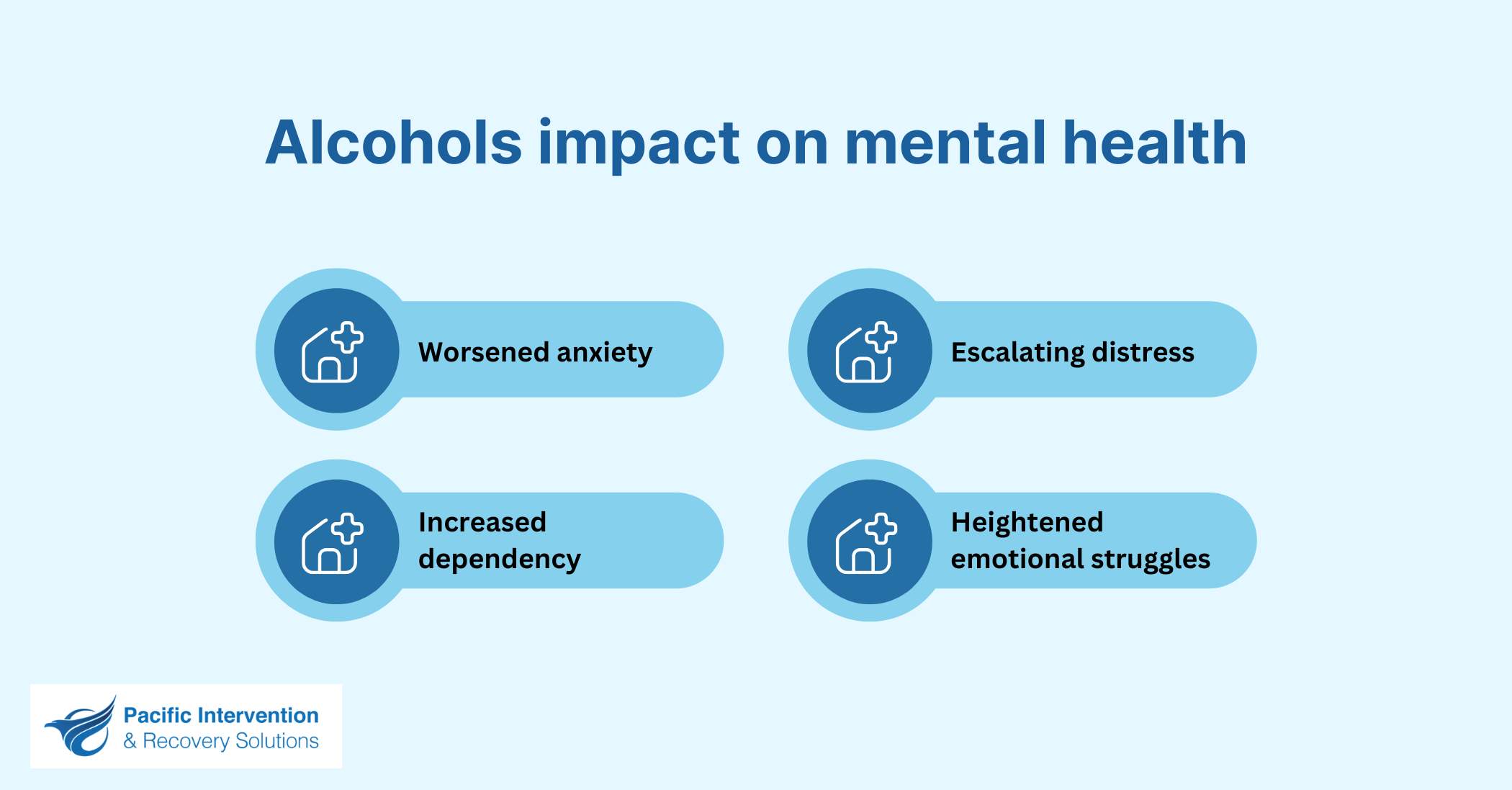“Is alcohol a stimulant or depressant?” Because drinking often makes people feel more outgoing and social, this question can seem tricky. However, understanding whether alcohol acts as a depressant or stimulant is essential to knowing its effects on the mind and body, especially as these effects may shift with time or increased consumption.
If you or someone close to you wants to understand alcohol’s impact better—or is considering starting a journey to recovery—learning about how it affects the body and mind is a valuable first step.
What is a stimulant?
Stimulants increase activity in the brain and body, earning them the nickname “uppers.” They help you feel more energetic, focused, and alert. Many people rely on caffeine for a slight boost, while other stimulants, such as nicotine, amphetamines, and cocaine, can elevate heart rate and improve mood.
Stimulants work by increasing certain brain chemicals, such as dopamine, which create feelings of energy and well-being. While these effects may be appealing, stimulants can also become addictive due to the temporary “boost” they provide.

What is a depressant?
In contrast, depressants slow down the central nervous system, often earning the nickname “downers.” They help reduce feelings of anxiety or stress, creating a sense of calm. Common depressants include alcohol, benzodiazepines (often prescribed for anxiety), and sedatives.
While depressants have a relaxing effect, they can also cause drowsiness, sluggishness, and reduced responsiveness. Though often used to treat insomnia and anxiety, overuse or mixing depressants with other substances can be dangerous.
How alcohol acts as both a stimulant and a depressant
Alcohol is unique because it can act as both a stimulant and a depressant. Initially, after a drink or two, people may feel more energetic, social, and relaxed—similar to the effects of stimulants. This is due to increased dopamine, a brain chemical that produces feelings of happiness and excitement.
However, alcohol’s effects shift quickly. As more is consumed, it acts as a depressant, slowing down the brain and nervous system. This leads to drowsiness, impaired coordination, and reduced alertness, resulting in lowered consciousness and cognitive function.

Why is alcohol primarily classified as a depressant
Although alcohol can provide an initial energy boost, it is mainly classified as a depressant because it ultimately slows down brain and body functions. The depressant effects of alcohol quickly outweigh any initial stimulation, leading to reduced brain activity and slower physical response times.
Research supports this classification, showing that alcohol significantly affects GABA receptors, which causes sedation, slower reflexes, and impaired judgment. While it might feel like alcohol offers a brief “boost,” its lasting impact is a slowing effect on both mind and body.
Impact of Alcohol on Mental Health
The impact of alcohol on mental health is complex, particularly for those dealing with anxiety, depression, or addiction. While it may seem like a temporary escape, alcohol often worsens mental health symptoms over time. This effect is especially noticeable during alcohol withdrawal symptoms, which can increase anxiety and mood swings. Here’s how alcohol can affect mental health and contribute to addiction:

Intensifies Symptoms
Alcohol often amplifies anxiety and depression, making it increasingly difficult for individuals to manage these emotions. Over time, even small amounts of alcohol can trigger or worsen these mental health symptoms, leading to more intense emotional struggles.
Creates a Cycle of Distress
While alcohol may provide temporary relief, it generally heightens negative feelings as it wears off. This short-lived escape often leads to a vicious cycle of drinking to cope, followed by even greater emotional distress, reinforcing harmful drinking habits.
Encourages Dependency
The calming effects of alcohol can make stopping difficult, as individuals may turn to it regularly to escape discomfort or challenging emotions. This reliance can quickly evolve into physical and psychological dependence, making quitting increasingly challenging.
Deepens Psychological Struggles
As a depressant, alcohol exacerbates underlying emotional issues, particularly for those with pre-existing mental health conditions. Rather than providing adequate relief, alcohol’s effects often worsen emotional struggles over time, making it a harmful and ineffective coping mechanism.
How can we support your alcohol recovery?
Learning about the effects of alcohol is a valuable first step for you or a loved one. If you’re wondering where to get help for alcohol addiction, Pacific Interventions is here to help. We assess each patient’s unique needs and use evidence-based methods to create personalized treatment programs.
Our goal is to help you regain control of your life and health, providing the tools to build a brighter future free from addiction. Whether you or a loved one needs guidance, our team is here to support you every step of the way.
Final Words
Alcohol is a complex substance. While it may initially act as a stimulant, its primary effect is as a depressant, slowing down the central nervous system and significantly impacting mental health. Understanding this classification helps explain why heavy drinking often leads to dependence and worsens mental health issues over time.
If you or someone you know is struggling with alcohol addiction, professional support can make a big difference. Pacific Interventions offers compassionate, personalized care tailored to your needs. We’ree here to guide you through every step of recovery.



